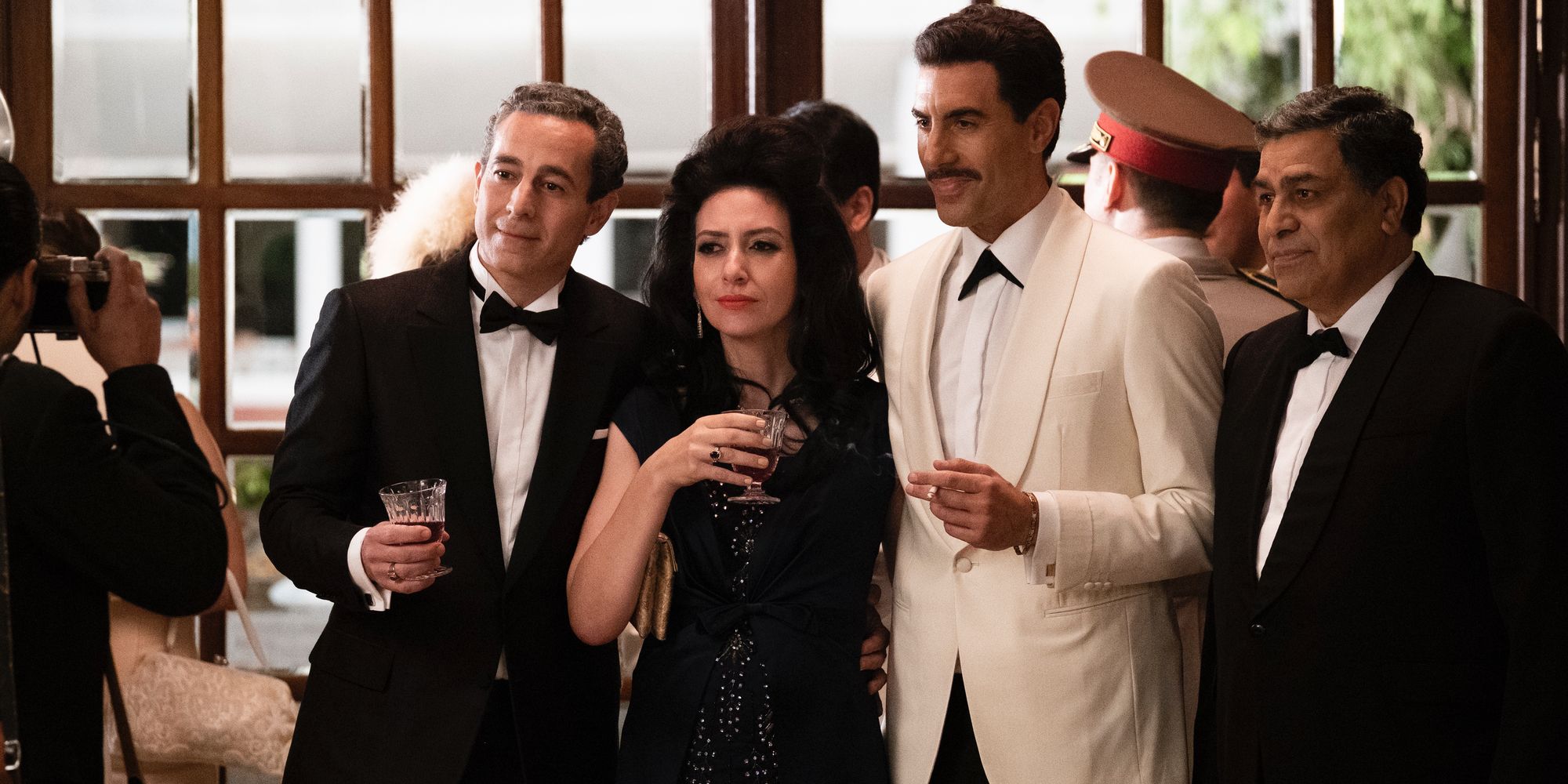Though it bears many of the same trademark signs, Netflix’s The Spy is not your typical espionage thriller, and that’s not just because it stars the guy who created Borat as a real-life Israeli intelligence officer caught up in a web of his own deceit. Sacha Baron Cohen plays Eli Cohen, a fictionalized version of the actual Israeli spy who in the 1960s assumes a second identity as Kamel Amin Thaabet, a mustachioed businessman and financier, as a way of acquiring intelligence on Syria’s plans against Israel. And while the series hails from Homeland writer Gideon Raff, along with Max Perry, and focuses much of its energies on the exploits of a man who is perhaps the most famous Israeli spy (a dubious oxymoronic honor) and hero, the limited series is a sedate thriller, one more fascinated by the blurred lines of its lead character’s dual identities than it is delivering a familiar depiction of spycraft.
When you consider Raff’s work on Prisoners of War (and later, Homeland), Tyrant, and more, it’s easy to see how the writer and director’s fascination with duality and identity brought him to the story of Eli Cohen. Not only does he have the benefits of being “based on a true story” to back the narrative up, but he also gets to play around in what is seemingly his preferred narrative sandbox, that of spies and their handlers being drawn into by their own duplicity, to the point that they no longer truly recognize even themselves.
To that end, The Spy plays out more like a John le Carré novel than a typical espionage drama, even one written by Raff. In fact, it bears some resemblance to the recent adaptions of le Carré’s The Night Manager or The Little Drummer Girl, in which the opportunity to playing a part, become another person, and engage in dangerous undercover work is so seductive it becomes like a drug. Unlike those adaptations, however, The Spy brings reality into the fold, conveying not only Eli’s exploits and the unenviable place in which they eventually bring him, but it also brings the weight of decades of protracted conflict between Israel and its neighbors, especially in the middle part of the 20th century. At times, those elements align just so that The Spy becomes an intriguing thriller, despite an otherwise subdued approach to the overarching story.
Though only a six-episode limited series, The Spy spends a great deal of time on what is essentially preamble to the main event. Raff and Perry take great pains to sketch Eli as a patriot desperate to prove himself in service to his country, despite his position as a department store accountant when the series begins. Eli races against the clock tallying up the day’s receipts, with no one to witness this minuscule triumph. Later, at a party with his wife Nadia (Hadar Ratzon Rotem), Eli is mistaken for a waiter by a more affluent friend of a friend, and he graciously sidesteps the embarrassment, only to poke fun at his own inconspicuousness with his wife later on that night. The introduction to Eli offers up a convincing illustration of his psyche and his wants, so that when Mossad agent Dan Peleg (Noah Emmerich) comes calling, there’s zero compunction on his part whether or not he wants to join Dan’s little spy game.
The series unfolds slowly, with the first two hours comprised primarily of Eli learning his trade and eventually excelling at it. The first hour even includes a lengthy training montage that spans months, as Eli becomes a lean, mean, intelligence machine. Eli’s transformation is almost as remarkable as the comedian who playing him. Like most funnymen, Sacha Baron Cohen also has a knack for drama, as seen in films like Les Misérables, Hugo, and the upcoming The Trial of the Chicago Seven. Combine that with his already chameleonic approach to roles in the aforementioned Borat, as well as Bruno, and especially Showtime’s Who Is America? and it’s not too surprising to find he’s more than ready to lead a six-hour spy drama where a man’s assumed identity threatens to swallow his real one whole.
Raff, who also directs all six episodes, positions Eli’s tale as part wish fulfillment and part doomed love story, as the nascent spy’s efforts to infiltrate the Syrian government find him an absent member of a growing family back home in Israel. To convey this, Raff makes use of a device in which the characters’ thoughts are literally scrawled out on screen as they compose letters to one another (sometimes under great duress). This approach not only grants the viewer what feels like direct access to the characters’ mindsets, but it also amplifies (truthfully or not) the sense that what’s unfolding on screen actually occurred.
While that may just be some clever sleight of hand on behalf of Raff and his co-writer, it’s an effective way to zero in on the series’ dramatic intent, illustrating the sacrifices Eli Cohen made for is country and just how eager he was to do so. It also allows The Spy to go ever deeper into Eli’s frame of mind as he’s reminded again and again by various handlers that, when he’s working, all that exists is Kamel Amin Thaabet, there is no Eli Cohen. At a certain point, the words begin to take hold, and the more Eli descends into a dangerous world of espionage, the less likely it seems he’ll ever climb back out again as the man he once was.
Though the series struggles at times to fill its already modest (at least by Netflix standards) six hours with what might be called a thrilling narrative, The Spy nevertheless manages to deliver a taut and compelling psychological drama that makes surprising use of Sacha Baron Cohen’s acting talents. A relatively quick binge, the drama may not introduce the next James Bond, but it certainly moves into the le Carré neighborhood.
The Spy streams exclusively on Netflix beginning Friday, September 6.



